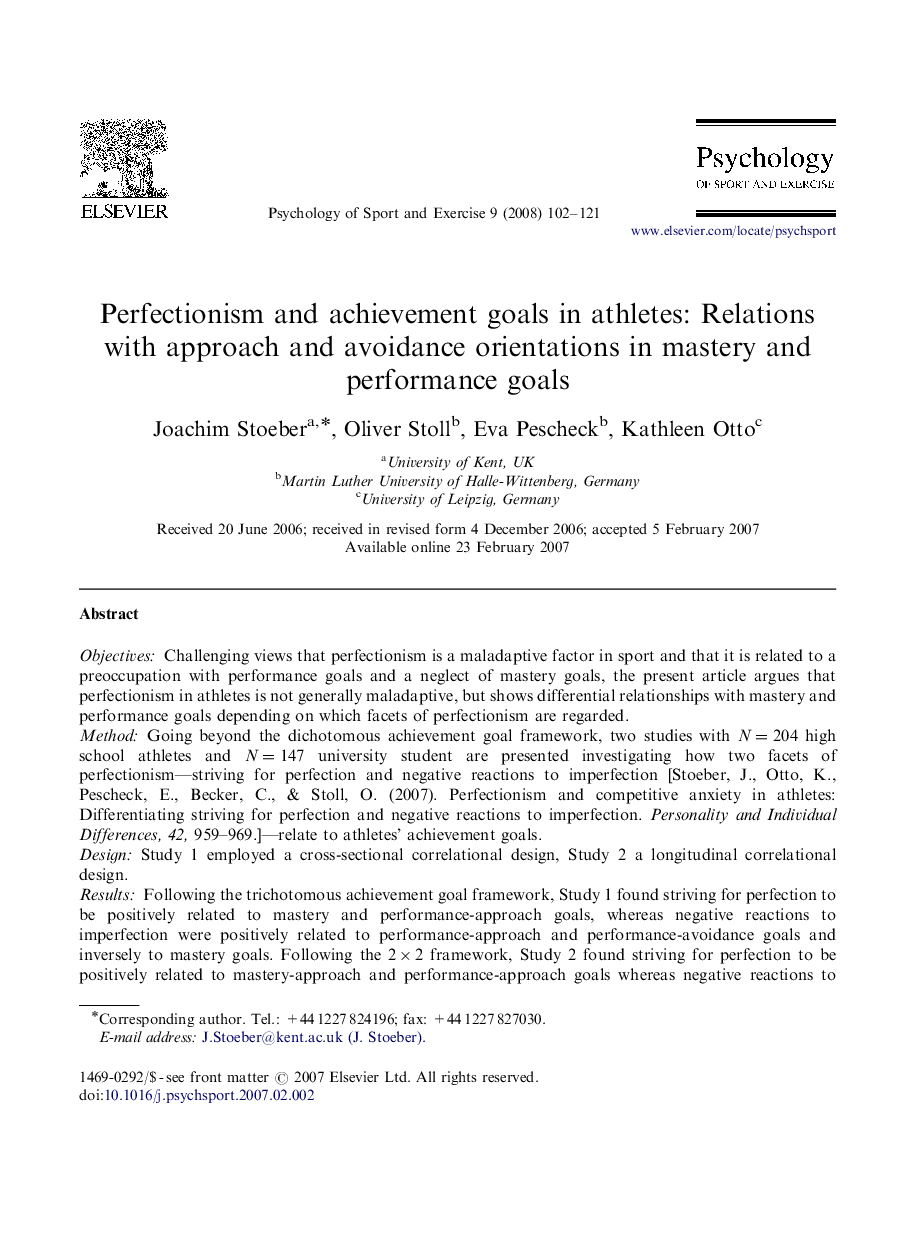| کد مقاله | کد نشریه | سال انتشار | مقاله انگلیسی | نسخه تمام متن |
|---|---|---|---|---|
| 894841 | 1472154 | 2008 | 20 صفحه PDF | دانلود رایگان |

ObjectivesChallenging views that perfectionism is a maladaptive factor in sport and that it is related to a preoccupation with performance goals and a neglect of mastery goals, the present article argues that perfectionism in athletes is not generally maladaptive, but shows differential relationships with mastery and performance goals depending on which facets of perfectionism are regarded.MethodGoing beyond the dichotomous achievement goal framework, two studies with N=204 high school athletes and N=147 university student are presented investigating how two facets of perfectionism—striving for perfection and negative reactions to imperfection [Stoeber, J., Otto, K., Pescheck, E., Becker, C., & Stoll, O. (2007). Perfectionism and competitive anxiety in athletes: Differentiating striving for perfection and negative reactions to imperfection. Personality and Individual Differences, 42, 959–969.]—relate to athletes’ achievement goals.DesignStudy 1 employed a cross-sectional correlational design, Study 2 a longitudinal correlational design.ResultsFollowing the trichotomous achievement goal framework, Study 1 found striving for perfection to be positively related to mastery and performance-approach goals, whereas negative reactions to imperfection were positively related to performance-approach and performance-avoidance goals and inversely to mastery goals. Following the 2×2 framework, Study 2 found striving for perfection to be positively related to mastery-approach and performance-approach goals whereas negative reactions to imperfection were positively related to mastery-avoidance, performance-approach, and performance-avoidance goals. Moreover, negative reactions to imperfection predicted residual increases in mastery-avoidance goals over 3 months.ConclusionsIt is concluded that striving for perfection in athletes is associated with an adaptive pattern of achievement goals whereas negative reactions to imperfection are associated with a maladaptive pattern. Thus, striving for perfection in sport may be adaptive in athletes who do not experience strong negative reactions when performance is less than perfect.
Journal: Psychology of Sport and Exercise - Volume 9, Issue 2, March 2008, Pages 102–121